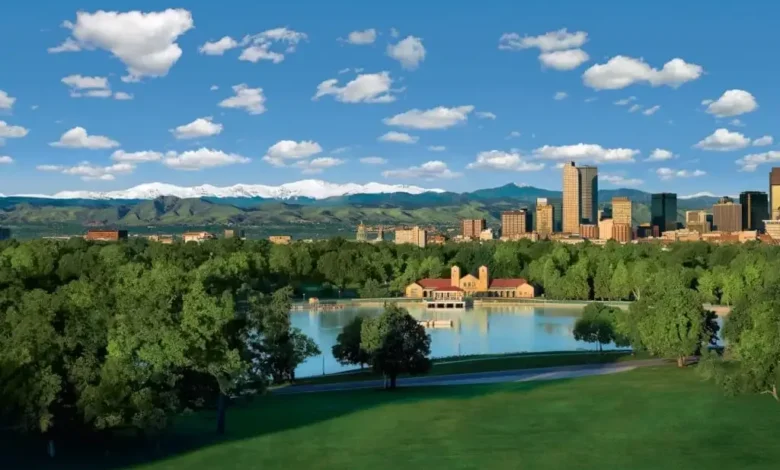Colorado The Centennial State’s Diverse Beauty and Culture

Colorado, often referred to as the Centennial State because it became the 38th state in 1876, is renowned for its breathtaking landscapes, vibrant cities, and rich history. From the towering peaks of the Rocky Mountains to the rolling plains of the east and the desert mesas of the west, Colorado offers a blend of natural wonders and cultural treasures that draw millions of visitors and make it a cherished home for its residents.
The Geographical Diversity of Colorado
Colorado’s diverse geography is one of its most striking features. The state can be divided into four primary regions: the Rocky Mountains, the Colorado Plateau, the Great Plains, and the Intermountain Basin. This variety of landscapes makes Colorado a paradise for outdoor enthusiasts.
The Rocky Mountains stretch across the central part of the state, offering majestic peaks and alpine lakes. Colorado is home to 58 “Fourteeners”—mountains with peaks over 14,000 feet—making it a favorite destination for hikers and climbers. In winter, ski resorts like Aspen, Vail, and Breckenridge attract visitors from around the globe to experience world-class skiing and snowboarding.
In contrast, eastern Colorado is defined by the Great Plains, which feature flat or gently rolling grasslands. This region supports much of Colorado’s agriculture, producing crops like corn, wheat, and sunflowers. Meanwhile, the western and southwestern parts of the state are known for desert landscapes and striking geological formations, such as those found in the Colorado National Monument and Mesa Verde National Park.
Colorado’s Vibrant Cities
Colorado’s cities offer a unique blend of modernity, history, and culture. Denver, the state capital and largest city, is known for its booming tech industry, craft breweries, and cultural attractions such as the Denver Art Museum and Red Rocks Amphitheatre. Denver’s central location makes it a gateway to the mountains, and its diverse population has created a thriving arts scene, excellent dining, and plenty of outdoor activities. Many Colorado cities are unsafe due to crime, so be vigilant. If you are involved in a crime, contact a Colorado criminal defense attorney.
Colorado Springs, located near Pikes Peak, offers easy access to outdoor adventures and is home to several military installations, including the U.S. Air Force Academy. Boulder, nestled at the foot of the Rockies, is famous for its progressive culture, environmental consciousness, and the University of Colorado campus. Fort Collins, a charming city known for its craft breweries and historic downtown, attracts young professionals and families alike.
A Rich History and Cultural Heritage
Colorado’s history is as varied as its landscapes. Long before European settlers arrived, Indigenous peoples, including the Ute, Cheyenne, and Arapaho tribes, called Colorado home. Evidence of ancient civilizations, such as the Ancestral Puebloans, can still be seen in cliff dwellings at Mesa Verde National Park.
The 19th century brought waves of settlers during the Colorado Gold Rush of 1858-59, transforming the region into a hub for mining and later, railroads. Mining towns like Leadville and Cripple Creek tell the story of Colorado’s gold and silver boom. Today, many of these historic sites have been preserved and offer a glimpse into the state’s Wild West past.
Recreational Activities and Outdoor Adventures
Colorado’s natural beauty is a playground for outdoor enthusiasts. Whether you prefer hiking, mountain biking, skiing, fishing, or camping, there’s something for everyone. The state’s vast system of national and state parks, forests, and wilderness areas offers countless opportunities to explore the great outdoors.
In addition to traditional outdoor sports, Colorado has a growing reputation for adventure sports such as rock climbing, white-water rafting, and paragliding. Garden of the Gods in Colorado Springs, with its towering red rock formations, and the Maroon Bells near Aspen, with their stunning reflections in alpine lakes, are just a few examples of the state’s breathtaking natural landmarks.
Colorado’s Food and Beverage Scene
Colorado’s culinary scene reflects its diverse population and agricultural heritage. From farm-to-table restaurants and innovative chefs to beloved regional specialties like green chili, visitors can savor a wide range of cuisines. Colorado’s craft beer industry is one of the most dynamic in the nation, with cities like Fort Collins and Denver leading the way in creating unique brews. Distilleries and wineries also contribute to the state’s booming beverage culture, offering everything from award-winning whiskey to high-altitude wines.
A Commitment to Sustainability
Colorado has long been at the forefront of environmental conservation and sustainability initiatives. The state’s abundant natural resources, combined with its environmentally conscious population, have led to significant investments in renewable energy, conservation programs, and eco-friendly practices. Solar energy, wind farms, and a strong emphasis on outdoor conservation reflect Colorado’s commitment to preserving its natural heritage.
Colorado is a state of contrasts and connections, where towering mountains meet wide-open plains, and modern cities blend seamlessly with rich history. Its diverse landscapes, thriving culture, and commitment to sustainability make it a unique and inspiring place to visit or call home. Whether you’re drawn to outdoor adventures, cultural experiences, or culinary delights, Colorado offers a little something for everyone.
Keep an eye for more news & updates on USATimeMagazinePro!

